Students visit the national historical site of the house at 48 Hang Ngang ( Hanoi )
In the thousand-year history of building and defending the country, there are places that are considered immortal milestones, places that preserve and attest to the great turning points of the nation. House No. 48 Hang Ngang Street (Hanoi) is such an address.
The mark of a great historical moment
On August 23, 1945, from the Tan Trao revolutionary base, Uncle Ho returned to Hanoi. At house number 48 Hang Ngang, President Ho Chi Minh devoted much effort to drafting the historical document “Declaration of Independence”.
The original owners of the house at that time were Mr. Trinh Van Bo and Mrs. Hoang Thi Minh Ho, famous and wealthy silk merchants, who dedicated the entire second floor for President Ho Chi Minh and the Central Party comrades to live and work from August 25 to September 2, 1945. The house at 48 Hang Ngang has a convenient location, located in the middle of one of the 36 ancient streets of Hanoi and leading to two streets, Hang Ngang and Hang Can. The tube house is about 70m2 wide , from the high floor you can observe the surroundings to ensure safety.
The reception room was where President Ho Chi Minh and the Central leaders welcomed and discussed work with delegates, revolutionary soldiers, and patriotic intellectuals during the days of the General Uprising. In this luxurious and warm space, Uncle Ho's simple lifestyle and work style still exuded, very close, humble, but always full of the spirit of a great leader.
The Politburo meeting room has an area of 72 square meters. In the center is a rectangular table with eight chairs, the table and chairs where President Ho Chi Minh chaired many important meetings with the Central Party Standing Committee during his stay and work here, especially in preparation for the inauguration of the Provisional Government on the occasion of National Day, September 2, 1945.
At the end of the room was a round table and four chairs, where Uncle Ho and the Central Committee members had their meals. These meals were prepared by Mrs. Hoang Thi Minh Ho herself, always tasting them herself to ensure Uncle's safety. When she was away, her eldest son took over this task.
To avoid the attention of the secret police, she continued to do business as usual. Along the wall was a row of chairs where General Vo Nguyen Giap rested during late nights of work. Near the door was a square table covered with green felt where President Ho Chi Minh typed documents.
On August 26, 1945, in this room, Uncle Ho listened to a report on the uprising situation throughout the country and chaired a meeting of the Central Standing Committee, deciding on many important issues: Converting the National Liberation Committee into a provisional government; expanding the composition of the government, inviting more patriotic intellectuals and scholars; organizing a large rally, declaring independence to the nation and the world, choosing September 2 to introduce the provisional government.
In the small room next door, President Ho Chi Minh diligently wrote the draft of the “Declaration of Independence”. During days and nights filled with tension but also with faith and aspiration, the document was born, concise but containing the power of reason and truth. On September 2, 1945, at the historic Ba Dinh Square, President Ho Chi Minh solemnly read the “Declaration of Independence”, giving birth to the Democratic Republic of Vietnam.
Symbolic value of the house at 48 Hang Ngang
Referring to the historical value of the address 48 Hang Ngang, historical researcher Le Van Lan said: First of all, 48 Hang Ngang is a vivid symbol of national solidarity . In the struggle for independence, not only workers, farmers, intellectuals, but also the patriotic bourgeoisie joined the national flow.
Mr. Trinh Van Bo's family not only dedicated their house to the provisional government, but also devoted their efforts and wealth to supporting the revolution. The house thus became a powerful testament to the spirit of "nation above all, Fatherland above all", to the strength of national unity that Ho Chi Minh repeatedly affirmed as the decisive factor for the victory of the Vietnamese revolution.
In addition, the historical value of the house at 48 Hang Ngang is associated with the birth of an immortal document. The “Declaration of Independence” written here not only affirms the right to self-determination of the Vietnamese people, but also puts our nation on par with civilized nations in the world. From the small room at 48 Hang Ngang, a document that has both international legal value and profound humanistic spirit was born.
It is not only a declaration to the people, but also a powerful declaration to the whole world: Vietnam has the right to live independently and freely, and the Vietnamese people are determined to use all their spirit, strength, lives and property to protect that sacred right . The house at 48 Hang Ngang, in the end, is the starting point of a new era for the Vietnamese people. From here, our country embarked on the journey of building a State of the people, by the people, for the people, the first State in the modern history of Vietnam founded on the principles of democracy and national independence.
The value of the house at 48 Hang Ngang also lies in the fact that it has become a witness, a “red address” reminding generations of Vietnamese people today and tomorrow about the price of independence and freedom. Independence does not come naturally, it is exchanged for blood, brains, and sacrifices of millions of Vietnamese people. Every time we step into this house, looking back at the small room where Uncle Ho wrote the “Declaration of Independence”, we seem to see his figure diligently working on the paper, worrying about the fate of the nation, shouldering the responsibility of the whole nation.
Meeting room and living room
Reminders from the past to the present and future
Eight decades have passed, and the house at 48 Hang Ngang has now become a national historical site. Inside, artifacts associated with historical moments are still preserved: a simple wooden table, a tea set, and President Ho Chi Minh's modest workplace. All of these create a tranquil space that makes viewers feel moved.
But more importantly, this relic is not only preserved as a historical evidence, but also as an address to educate the younger generation about revolutionary traditions. Every year, tens of thousands of students, students, and tourists from home and abroad come to visit, learn, and understand that the values of independence and freedom are sacred and cannot be exchanged.
Mr. Trinh Kien Quoc, the fifth son of patriotic capitalist Trinh Van Bo and Hoang Thi Minh Ho
Mr. Trinh Kien Quoc, the fifth son of patriotic capitalist Trinh Van Bo and Hoang Thi Minh Ho, emotionally said: “I am very moved to return to the house where my parents gave birth to me. This is also the house that my siblings and I are very proud of because my parents served the revolution for one month and three days.”
At that time, Uncle Ho talked to his mother and praised and advised the generations in the family to actively participate in the resistance and national construction work. Therefore, at the end of 1945 when he was born, his family named him Kien Quoc. Mr. Kien Quoc also said that through the stories told by his parents, promoting the family tradition, his siblings were always proud and actively participated in protecting and building the country as Uncle Ho wished.
The house at 48 Hang Ngang is not only a historical address. It is the origin of an immortal document, a testament to the strength of national unity, a spiritual support for all generations of Vietnamese people. Its meaning and value go beyond the scope of a house, a street, and become a priceless spiritual heritage of the entire nation.
Every time we mention 48 Hang Ngang, we not only mention the place where Uncle Ho wrote the "Declaration of Independence", but also mention the eternal aspiration of the Vietnamese people: the aspiration to live in freedom and independence, the aspiration to build a rich, civilized country, standing shoulder to shoulder with the world powers.
That house will forever be a meeting point of history, a place where every Vietnamese person, when stopping, reminds themselves of their responsibility to preserve and promote the sacred values of independence and freedom - to be worthy of what their ancestors entrusted them with since the historic Autumn of 1945.
Source: https://baovanhoa.vn/van-hoa/noi-khoi-dau-cho-ky-nguyen-moi-cua-dan-toc-viet-nam-165299.html



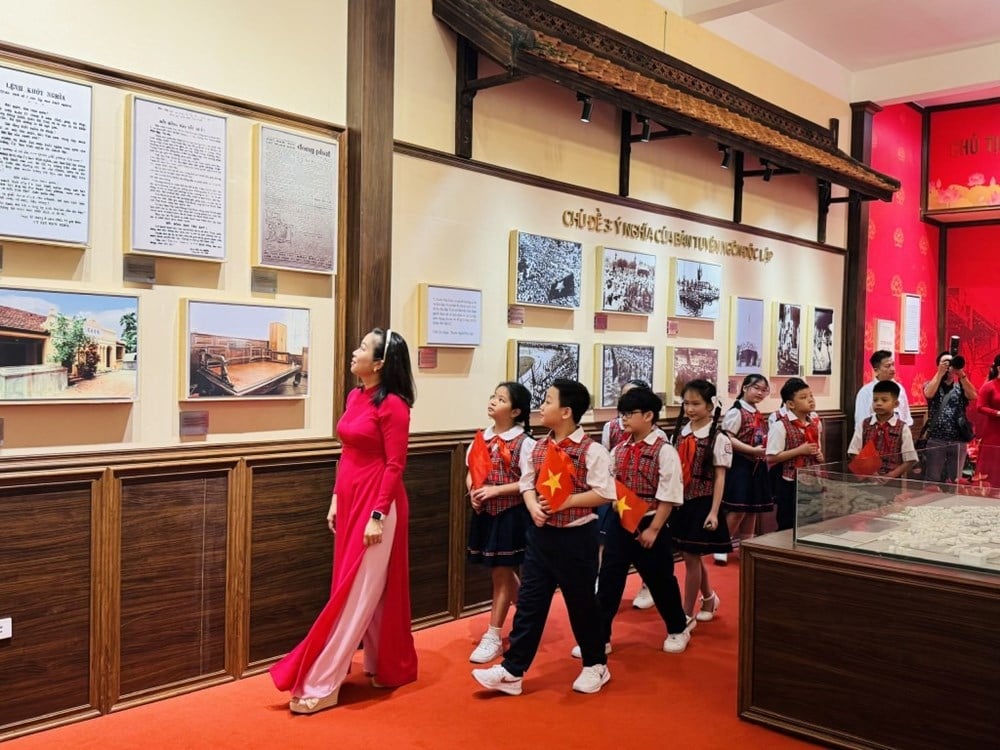
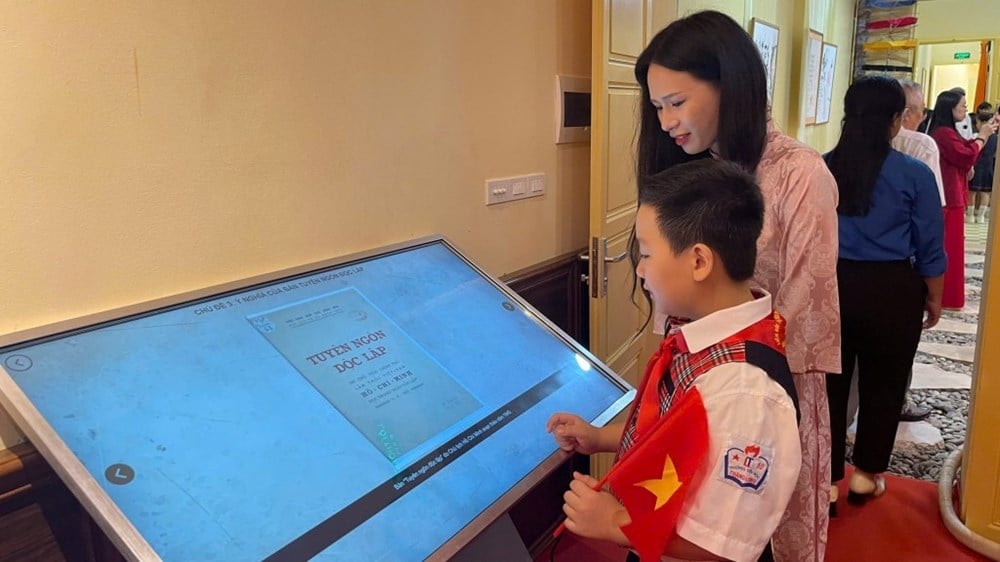
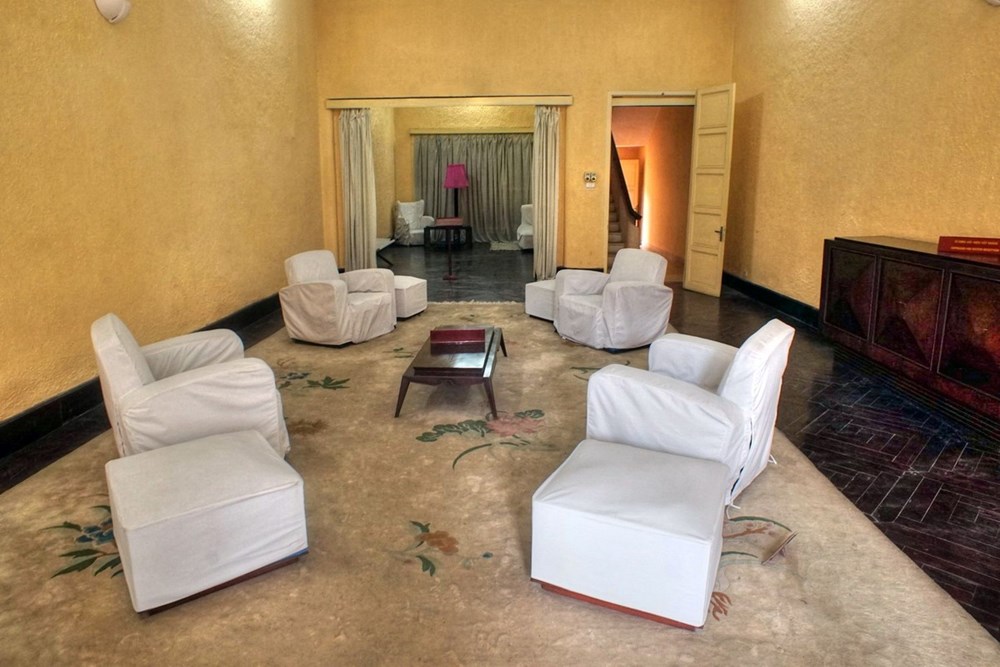
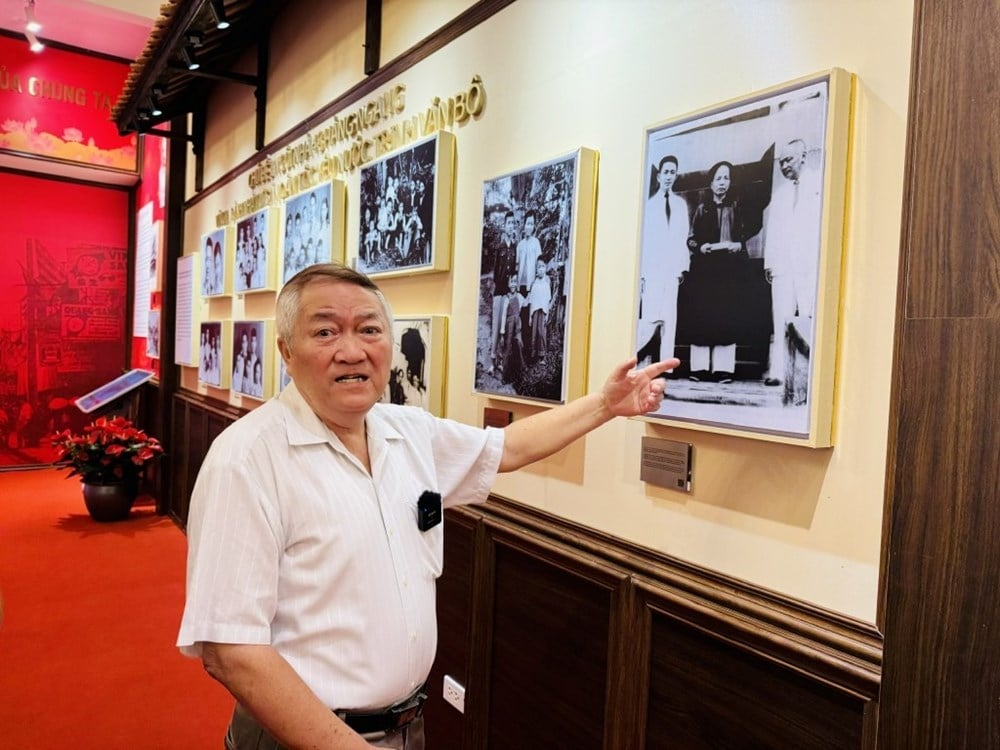
![[Photo] Chairman of the National People's Congress of China Zhao Leji visits the Ho Chi Minh Mausoleum](https://vphoto.vietnam.vn/thumb/1200x675/vietnam/resource/IMAGE/2025/9/1/45b2a2744fa84d27a59515b2fe53b42a)
![[Photo] Ho Chi Minh City is filled with flags and flowers on the eve of National Day September 2](https://vphoto.vietnam.vn/thumb/1200x675/vietnam/resource/IMAGE/2025/9/1/f493a66401844d4c90919b65741ec639)
![[Photo] General Secretary To Lam presides over the welcoming ceremony for First Secretary and President of Cuba Miguel Diaz-Canel Bermudez](https://vphoto.vietnam.vn/thumb/1200x675/vietnam/resource/IMAGE/2025/9/1/4f6ef5136b90463db3ebdd3d3d83ebe4)
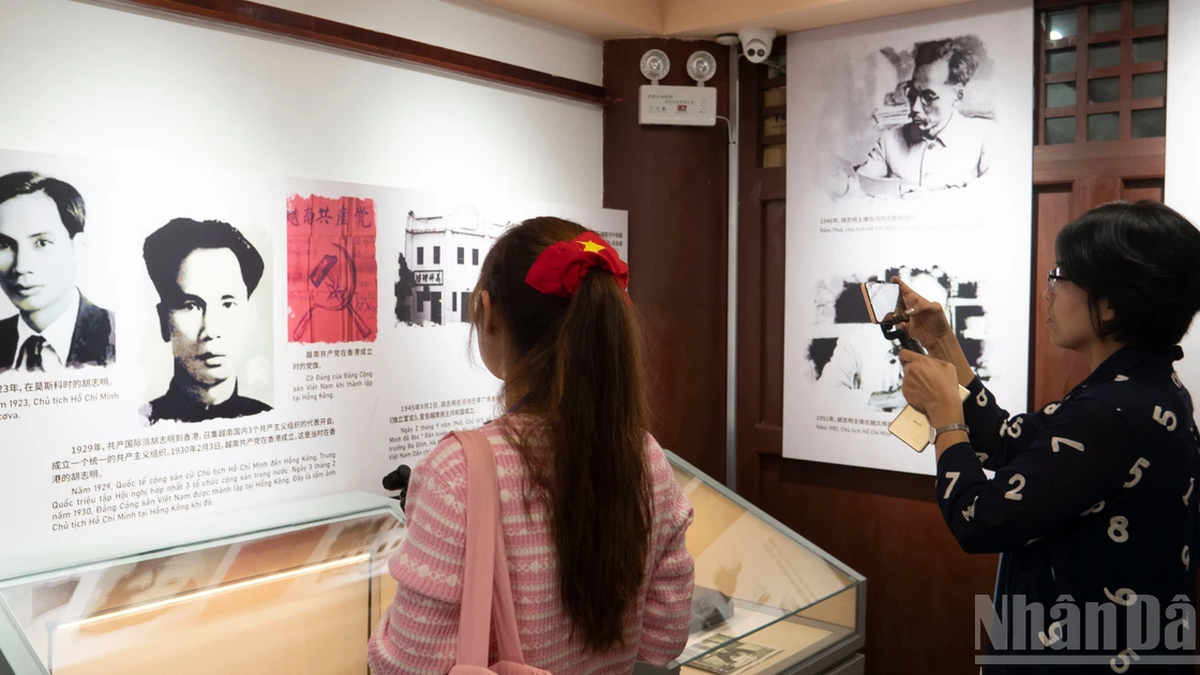
![[Photo] President Luong Cuong receives Chairman of the House of Representatives (Lower House) of the Republic of Belarus Igor Sergeyenko](https://vphoto.vietnam.vn/thumb/1200x675/vietnam/resource/IMAGE/2025/9/1/a67d61e41405410999a43db45a0ba29c)
![[Photo] General Secretary To Lam holds talks with First Secretary and President of the Republic of Cuba Miguel Diaz-Canel Bermudez](https://vphoto.vietnam.vn/thumb/1200x675/vietnam/resource/IMAGE/2025/9/1/a2eab2ee4e4a4a81a8c605e46055ab78)
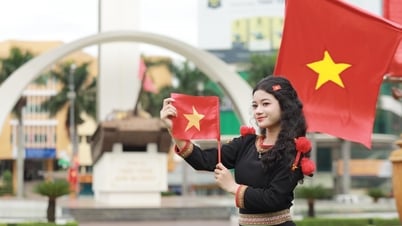







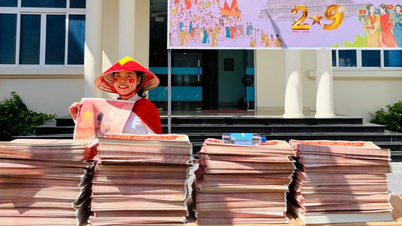



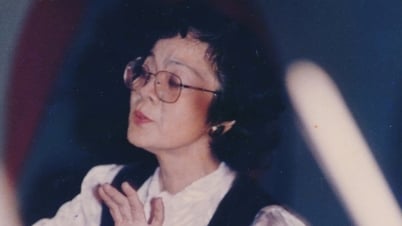






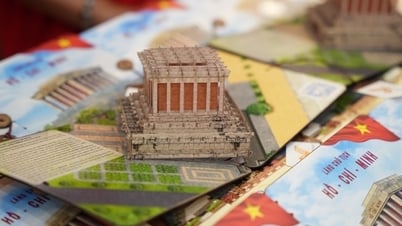






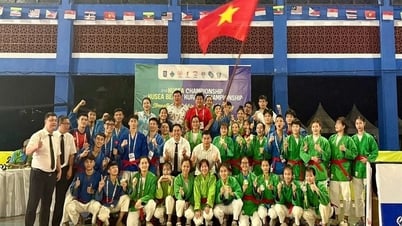

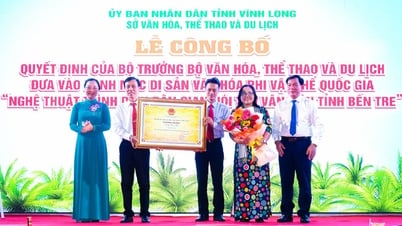


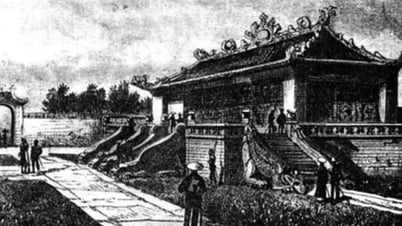








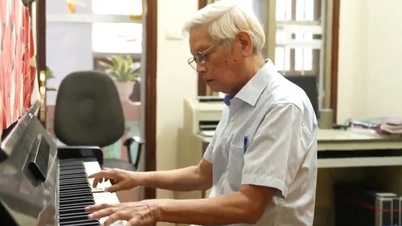
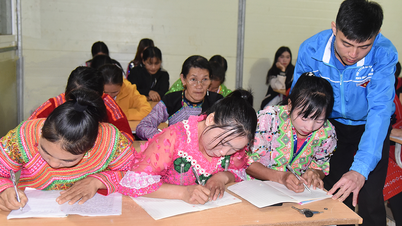










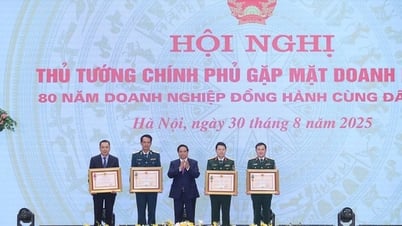
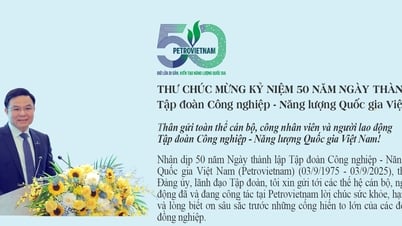

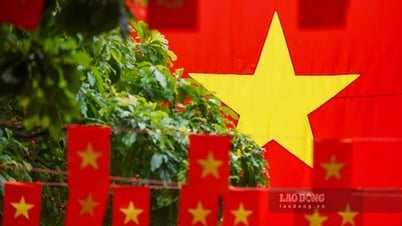

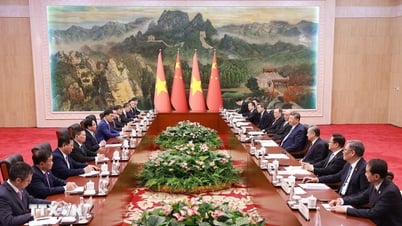

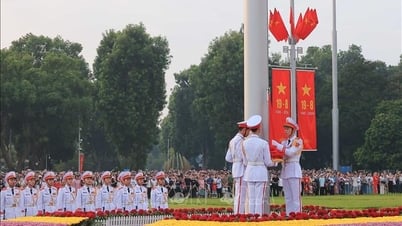

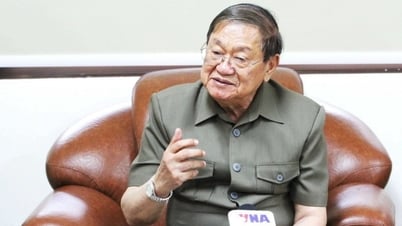

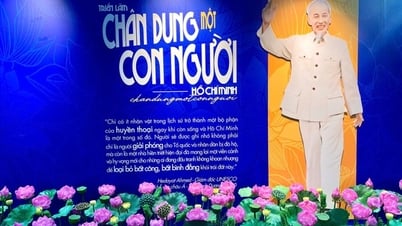




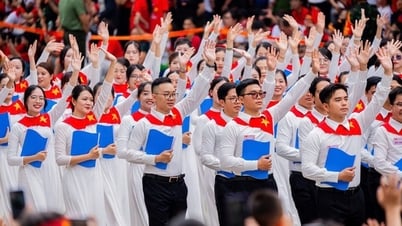
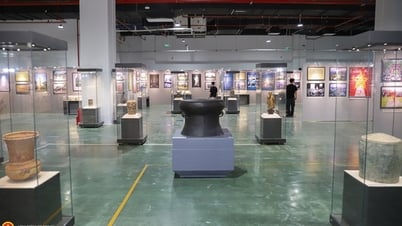
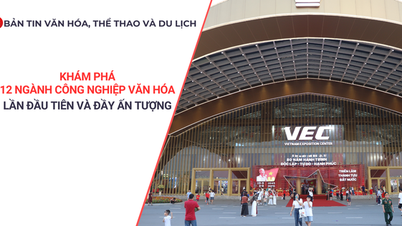







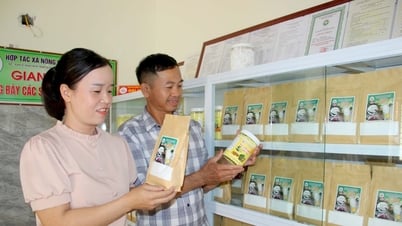
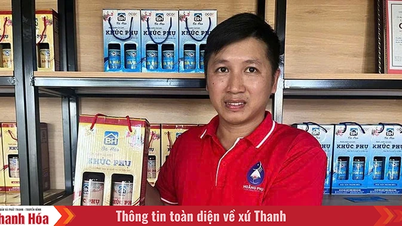



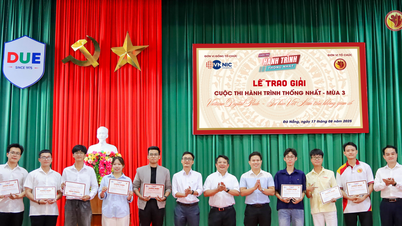



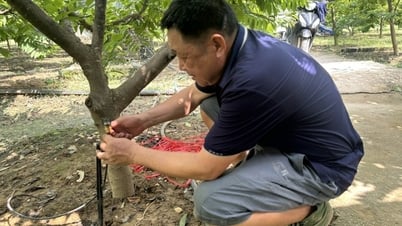



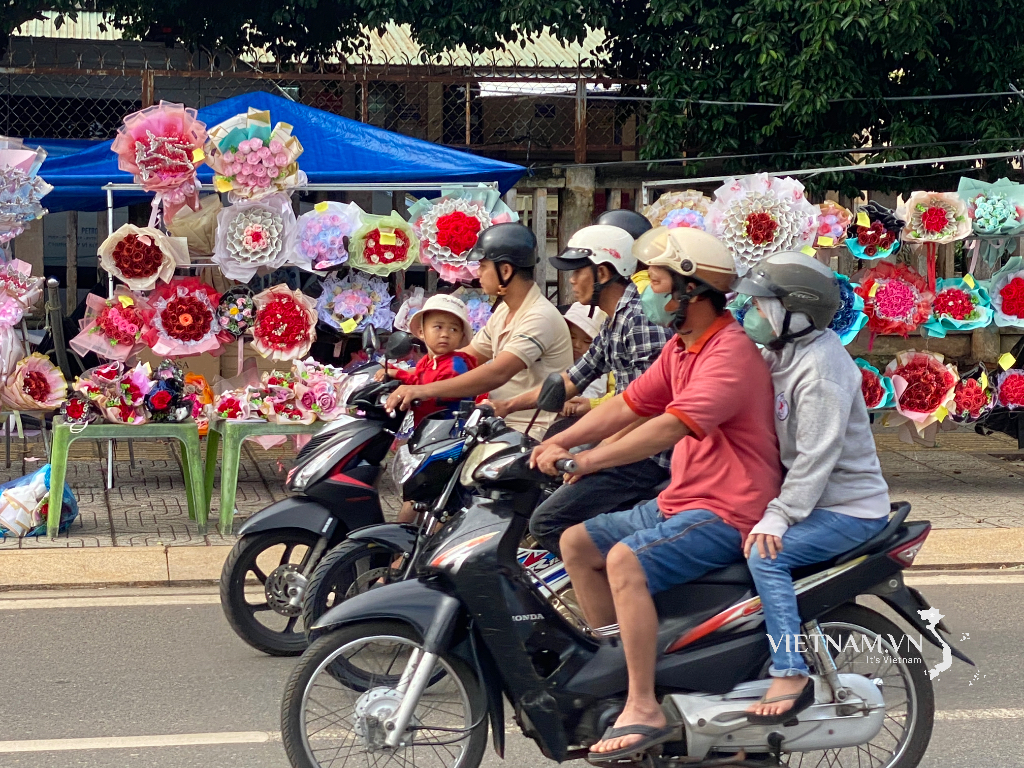

Comment (0)